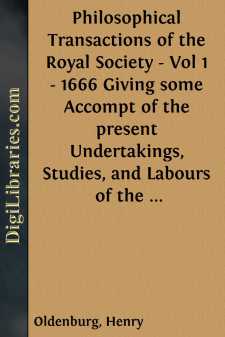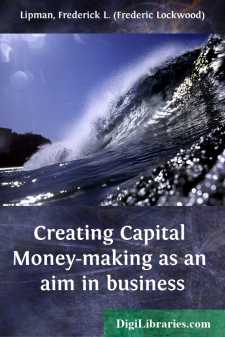Categories
- Antiques & Collectibles 13
- Architecture 36
- Art 48
- Bibles 22
- Biography & Autobiography 813
- Body, Mind & Spirit 142
- Business & Economics 28
- Children's Books 16
- Children's Fiction 13
- Computers 4
- Cooking 94
- Crafts & Hobbies 4
- Drama 346
- Education 46
- Family & Relationships 57
- Fiction 11829
- Games 19
- Gardening 17
- Health & Fitness 34
- History 1377
- House & Home 1
- Humor 147
- Juvenile Fiction 1873
- Juvenile Nonfiction 202
- Language Arts & Disciplines 88
- Law 16
- Literary Collections 686
- Literary Criticism 179
- Mathematics 13
- Medical 41
- Music 40
- Nature 179
- Non-Classifiable 1768
- Performing Arts 7
- Periodicals 1453
- Philosophy 64
- Photography 2
- Poetry 896
- Political Science 203
- Psychology 42
- Reference 154
- Religion 513
- Science 126
- Self-Help 84
- Social Science 81
- Sports & Recreation 34
- Study Aids 3
- Technology & Engineering 59
- Transportation 23
- Travel 463
- True Crime 29
Philosophical Transactions of the Royal Society - Vol 1 - 1666 Giving some Accompt of the present Undertakings, Studies, and Labours of the Ingenious in many considerable parts of the World
by: Henry Oldenburg
Categories:
Description:
Excerpt
The Introduction.
Whereas there is nothing more necessary for promoting the improvement of Philosophical Matters, than the communicating to such, as apply their Studies and Endeavours that way, such things as are discovered or put in practise by others, it is therefore thought fit to employ the Press, as the most proper way to gratifie those, whose engagement in such Studies, and delight in the advancement of Learning and profitable Discoveries, doth entitle them to the knowledge of what this Kingdom, or other parts of the World, do, from time to time, afford, as well of the progress of the Studies, Labours, and attempts of the Curious and learned in things of this kind, as of their compleat Discoveries and performances: To the end, that such Productions being clearly and truly communicated, desires after solid and usefull knowledge may be further entertained, ingenious Endeavours and Undertakings cherished, and those, addicted to and conversant in such matters, may be invited and encouraged to search, try, and find out new things, impart their knowledge to one another, and contribute what they can to the Grand design of improving Natural knowledge, and perfecting all Philosophical Arts, and Sciences. All for the Glory of God, the Honour and Advantage of these Kingdoms, and the Universal Good of Mankind.
There came lately from Paris a Relation, concerning the Improvement of Optick Glasses, not long since attempted at Rome by Signor Giuseppe Campani, and by him discoursed of, in a Book, Entituled, Ragguaglio di nuoue Osservationi, lately printed in the said City, but not yet transmitted into these parts; wherein these following particulars, according to the Intelligence, which was sent hither, are contained.
The First regardeth the excellency of the long Telescopes, made by the said Campani, who pretends to have found a way to work great Optick Glasses with a Turne-tool, without any Mould: And whereas hitherto it hath been found by Experience, that small Glasses are in proportion better to see with, upon the Earth, than the great ones; that Author affirms, that his are equally good for the Earth, and for making Observations in the Heavens. Besides, he useth three Eye-Glasses for his great Telescopes, without finding any Iris, or such Rain-bow colours, as do usually appear in ordinary Glasses, and prove an impediment to Observations.
The Second, concerns the Circle of Saturn, in which he hath observed nothing, but what confirms Monsieur Christian Huygens de Zulichem his Systeme of that Planet, published by that worthy Gentleman in the year, 1659.
The Third, respects Jupiter, wherein Campani affirms he hath observed by the goodness of his Glasses, certain protuberancies and inequalities, much greater than those that have been seen therein hitherto. He addeth, that he is now observing, whether those sallies in the said Planet do not change their scituation, which if they should be found to do, he judgeth, that Jupiter might then be said to turn upon his Axe; which, in his opinion, would serve much to confirm the opinion of Copernicus....




